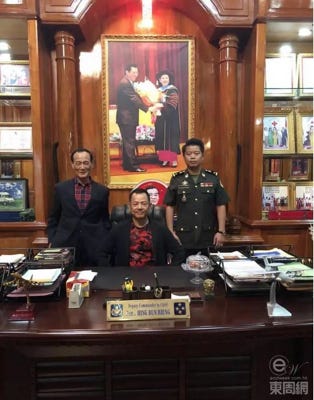Chinese Criminals are not Ten Feet Tall - The Mythology of Organised Crime and Communist United Front
The Asian Crime Century briefing 123
Reporting of Chinese organised crime as well as wider analysis of the Chinese Communist Party (CCP) is often drifting into sensationalism and storylines that fit a single narrative. In reality, organised crime and triads (Chinese secret societies) and their relationsh…



